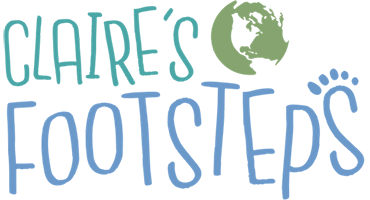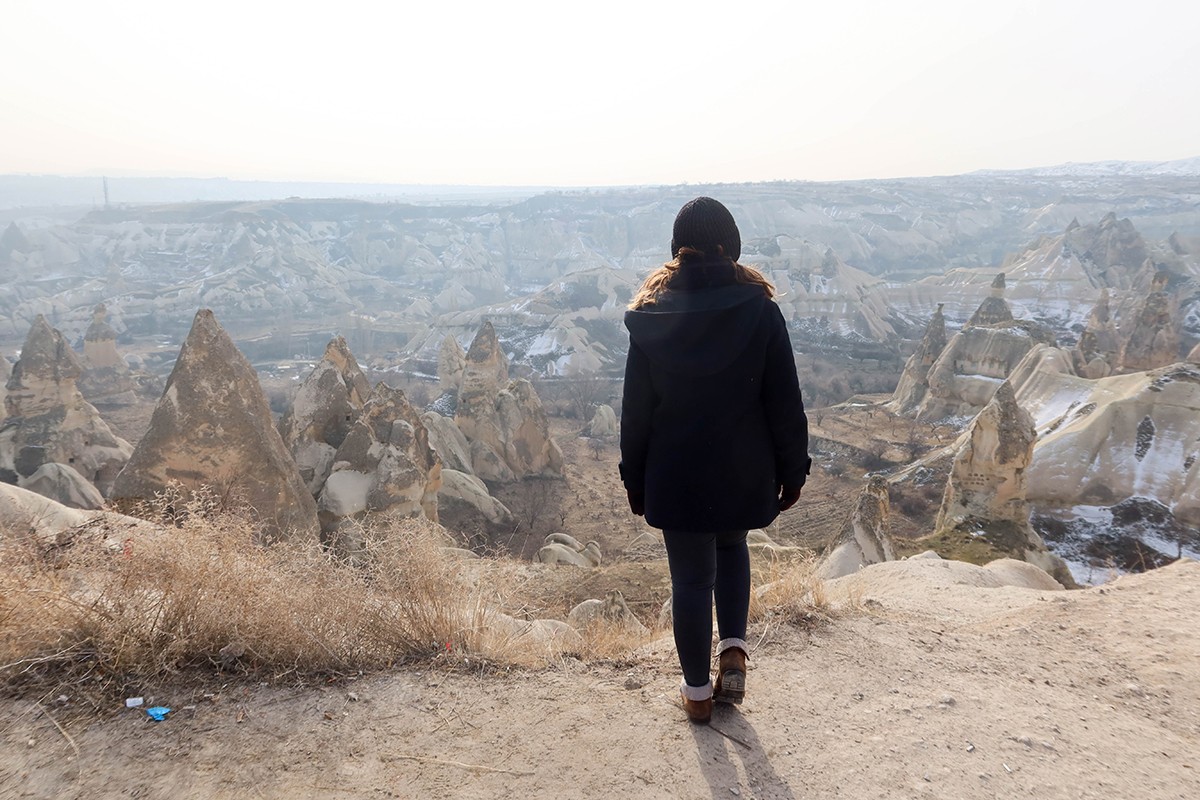Is Cappadocia safe?
The Turkish hotspot is loved by tourists.
But the media often paints Turkey, and in turn Cappadocia, out to be much more dangerous than it really is.
Here are my thoughts from my trip to Cappadocia and knowledge from travelling Turkey extensively.
Is Cappadocia safe?
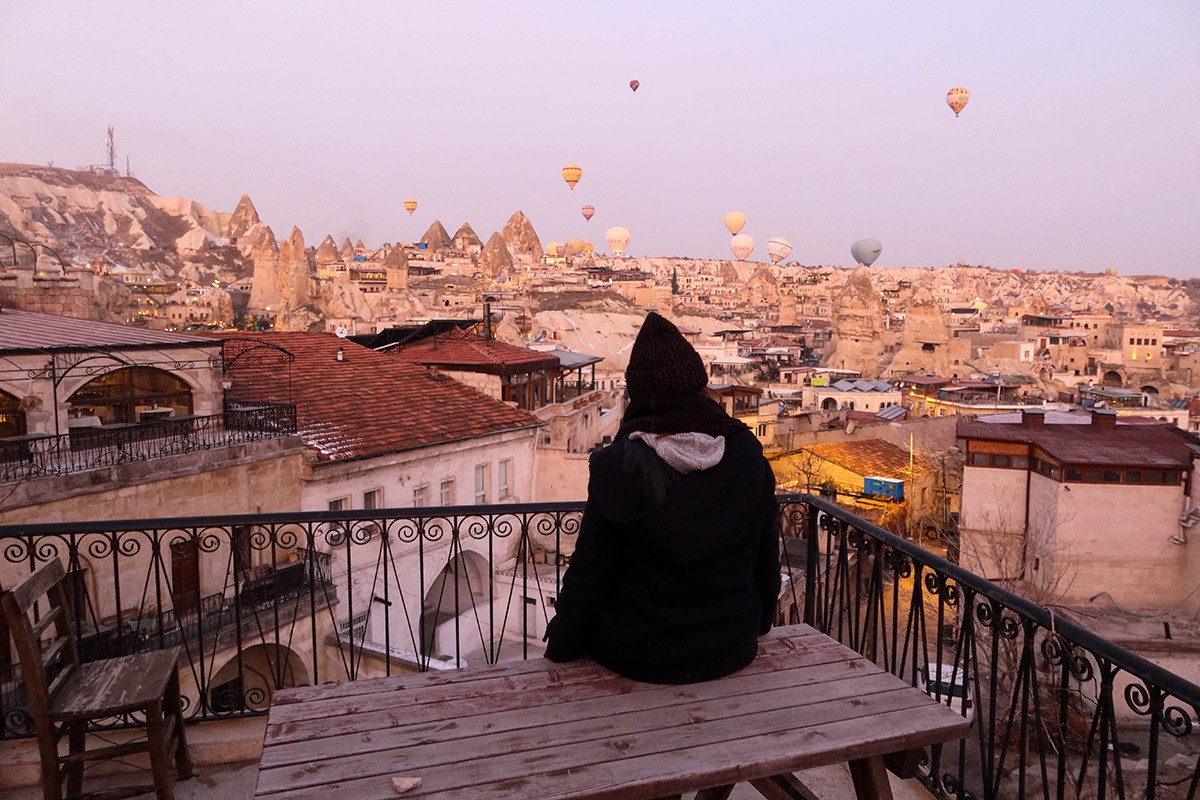
Yes, Cappadocia is chilled out, relaxed and is generally a very safe place to visit in Turkey.
Most of Turkey is safe for travel, but Cappadocia is especially safe!
It’s popular with travellers, and the economy is tourist-focused.
The crime rate in Cappadocia is relatively low, especially when it comes to violent crimes.
Is Cappadocia safe for solo female travellers?
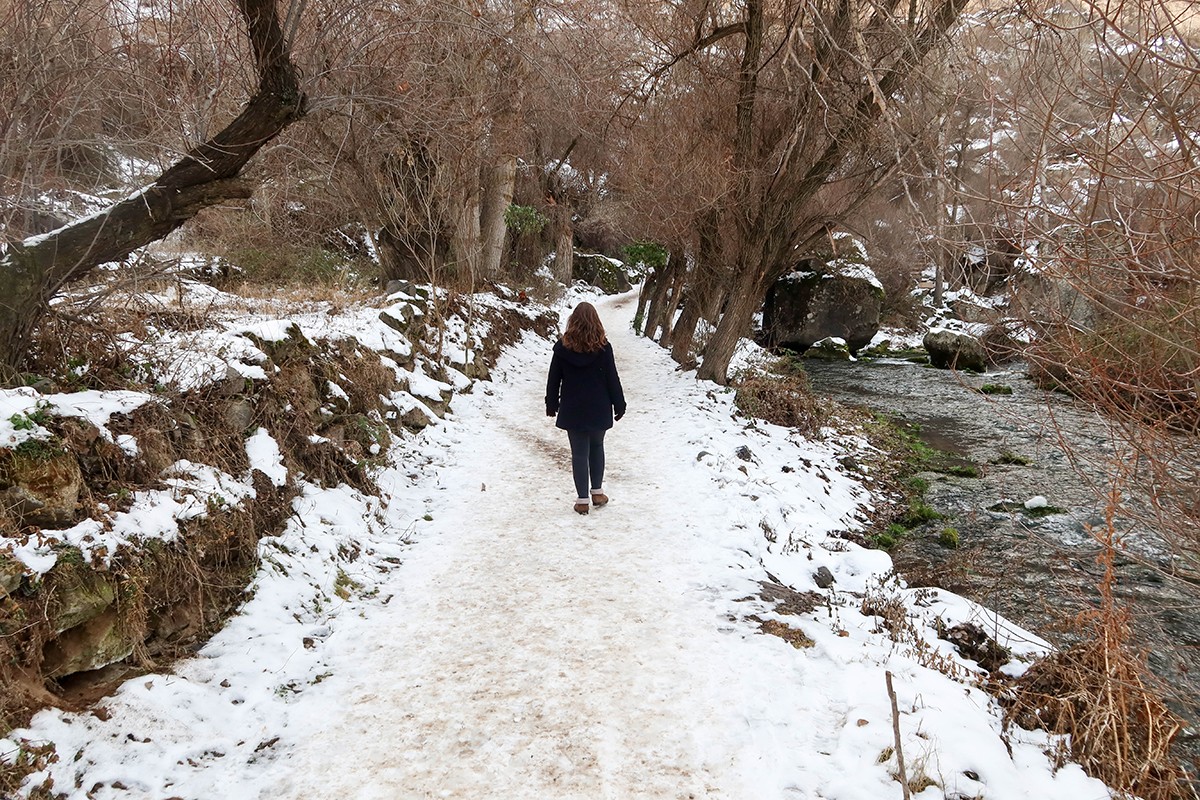
I didn’t visit Cappadocia as a solo female traveller – I was with my partner.
However, I have travelled solo in Turkey multiple times, to different (and much less touristy) areas of the country and I always felt safe.
In less touristy parts of Turkey, I was sometimes asked why I was travelling on my own, but this was more out of curiosity than anything.
But Cappadocia is a touristy region, so even this is unlikely to happen.
Of course, it’s important to use common sense and take precautions, including:
- don’t walk around alone late at night
- stay in a reputable hotel (look at the reviews)
- be cautious about giving people information about yourself and where you’re staying
- don’t drink excessively
Crime rate in Cappadocia
Turkey generally has a low crime rate, but Cappadocia’s is lower than average as it’s a smaller, tourist-centric town.
I wouldn’t have any reservations about crime in Cappadocia (especially not if you’re comfortable visiting larger Western European cities like Paris or London), but just be mindful of pickpockets and petty theft.
Global security of Turkey
While Western media often paints Turkey’s global security in a bad light, in reality, it’s usually stable.
Historically, the country has faced various security challenges, including terrorism, political instability, and regional conflicts – but these rarely affect tourists.
Terrorist attacks have happened, but they’ve been rarer in recent years and there’s a risk in many places across the world (including Western European capitals).
Cappadocia has not been a primary target for such incidents.
There’s also occasionally political instability in Turkey, but Cappadocia is relatively insulated from the direct effects of this.
As it stands, Cappadocia is in a safe position when it comes to global security, but of course, things can rapidly change – so do stay updated about current events, government travel advisories, and local news.
The Turkish government is generally proactive in ensuring the safety of tourists as it recognises the importance of tourism for the country’s economy.
Are hot air balloons in Cappadocia safe?
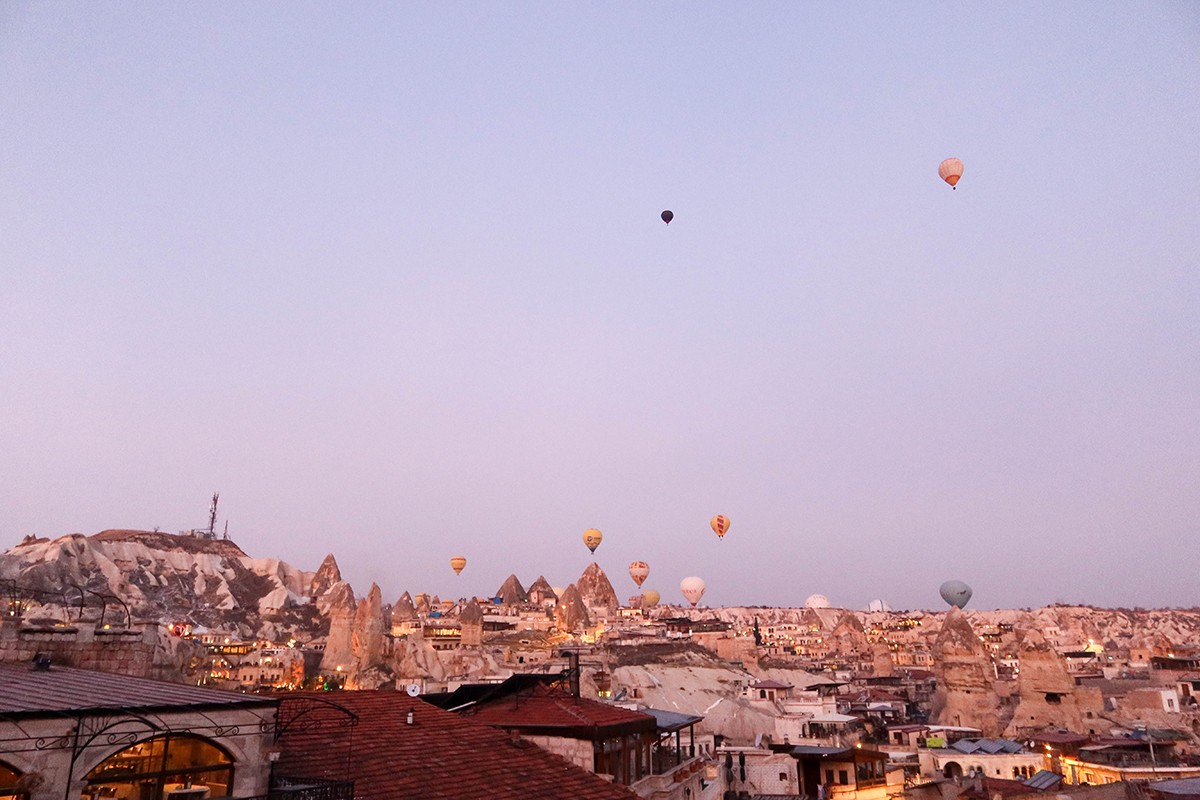
Hot air ballooning in Cappadocia is generally safe, but as with any adventure activity, there are some minor risks.
The balloons are operated by licensed pilots who undergo rigorous training and adhere to strict safety regulations.
Before each flight, pilots perform comprehensive checks on weather conditions and balloon equipment to ensure a safe experience – they are cancelled quite often if the weather conditions aren’t favourable.
Plus, the balloon companies in Cappadocia maintain high standards, often exceeding the safety requirements set by aviation authorities. The balloons are regularly inspected and maintained.
The occasional incident does happen, such as this in 2022 where two Spanish tourists tragically lost their lives.
Is hiking in Cappadocia safe?
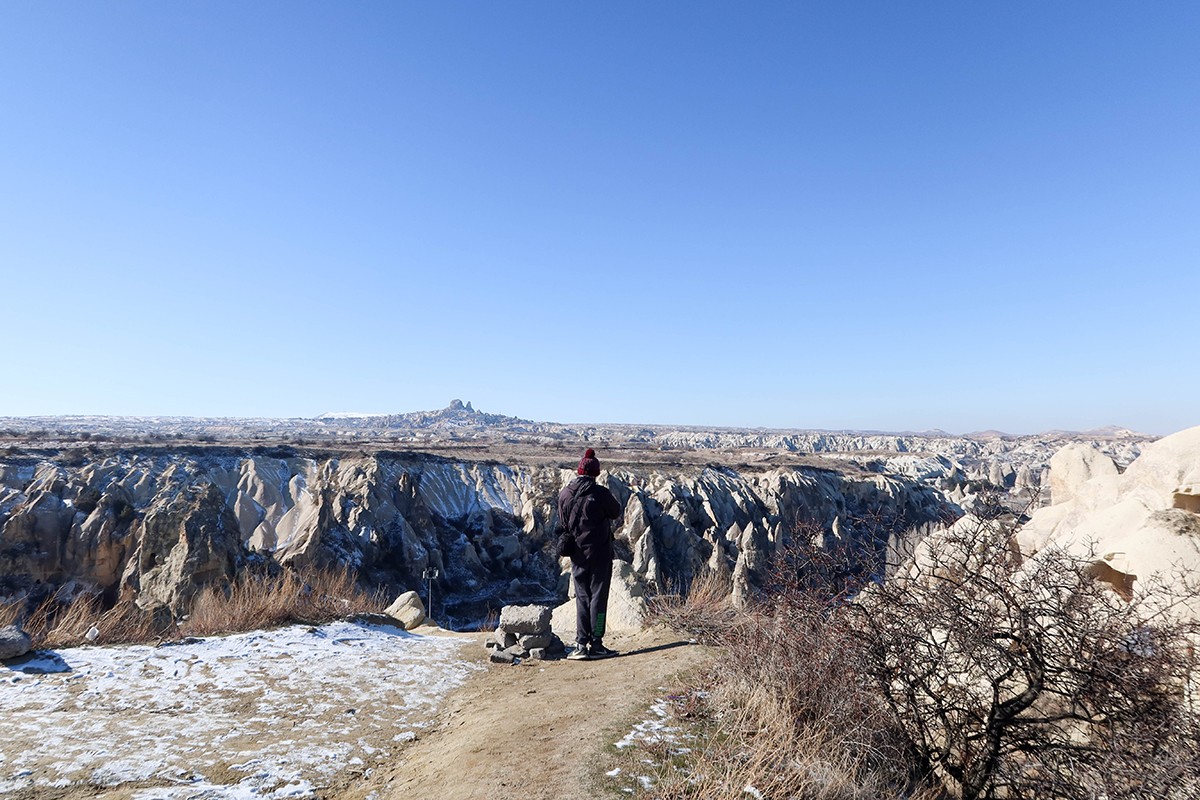
Hiking in Cappadocia is generally safe – and it’s a fantastic way to explore the region’s unique landscapes that it’s so famous for!
However, do keep in mind a few safety considerations!
The trails in Cappadocia vary in difficulty, so do choose a route that matches your fitness level and hiking experience.
Well-known paths like the Rose Valley and Love Valley are clearly marked and frequented by hikers which makes them safer.
Before setting out, ensure you have a map of the area, even if the trail is well-marked.
Weather conditions in Cappadocia can change quickly – it’s very cold in the winter and very hot in the summer – so do check the forecast and be prepared for varying temperatures.
Carry enough water, as dehydration is a risk, especially in the warmer months.
Wearing suitable hiking shoes and dressing in layers can make your hike more comfortable and safe.
It’s always better to hike with a companion or in a group. In case of an emergency, having someone with you can be invaluable.
If you’re hiking alone, let someone know your planned route and expected return time.
Cell phone reception in the valleys can be spotty, so don’t rely solely on your phone for navigation or emergency communication (although I do recommend having a Turkish SIM card).
Carrying a basic first-aid kit and knowing how to use it is also a good idea.
Respecting the natural environment is crucial for your safety and the preservation of Cappadocia’s beauty.
Stay on marked trails to avoid getting lost and to protect the fragile ecosystem.
If you’re not confident in planning your hike, hire a local guide who can provide valuable insights and ensure a safe and enjoyable experience.
Can I drink the tap water in Cappadocia?
Technically yes, but it doesn’t have a nice taste, plus it might have minerals that you aren’t used to and could make you feel some minor discomfort. It won’t make you ill though.
It’s recommended to use bottled water instead, which is readily available, or drink your water through a filtration device like Water to Go.
It’s fine to use tap water to brush your teeth.
Staying healthy in Cappadocia
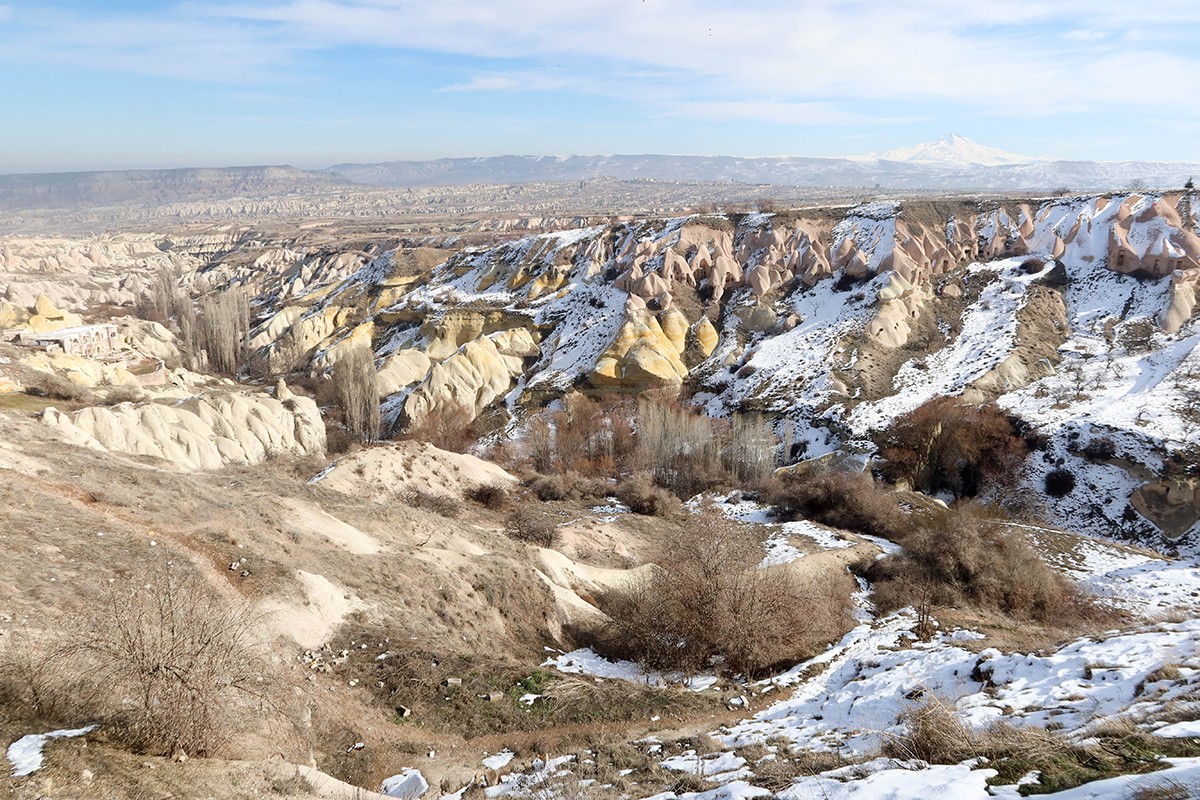
There are no real health risks for travel in Cappadocia; no particular vaccinations are recommended for travel to Turkey, although it is recommended to be up-to-date with your standard vaccines.
Food is generally cooked to a high standard and as tap water is usually clean, you don’t usually need to worry about salads being washed in water etc.
Be mindful that it can be cold in the winter months; make sure you layer up and take plenty of indoor stops. In the summer, the Anatolian Plateau has the opposite problem – it can be baking hot, and there’s next to no shade! So make sure that you use plenty of sun cream and hydrate.
These are the Turkish emergency numbers:
- Police: 155.
- Fire: 110.
- Ambulance: 112.
Is Cappadocia close to the Syrian border?
Cappadocia is about 475km from the Syrian border – around a five-hour drive. It’s perfectly safe in this regard – and I’ve been much closer to the Syrian border, which was also completely safe!
The Syrian border is heavily fortified (only one is currently open, and it’s difficult to travel between the two countries) and while Syria certainly is still a country in crisis, rebels don’t have control of much of the nation these days, so they’re definitely not about to infiltrate into Turkey.
So, is Cappadocia safe?
Yes! Cappadocia (and Turkey) is perfectly safe – and it’s one of the most magical places you to visit in all of Europe.
